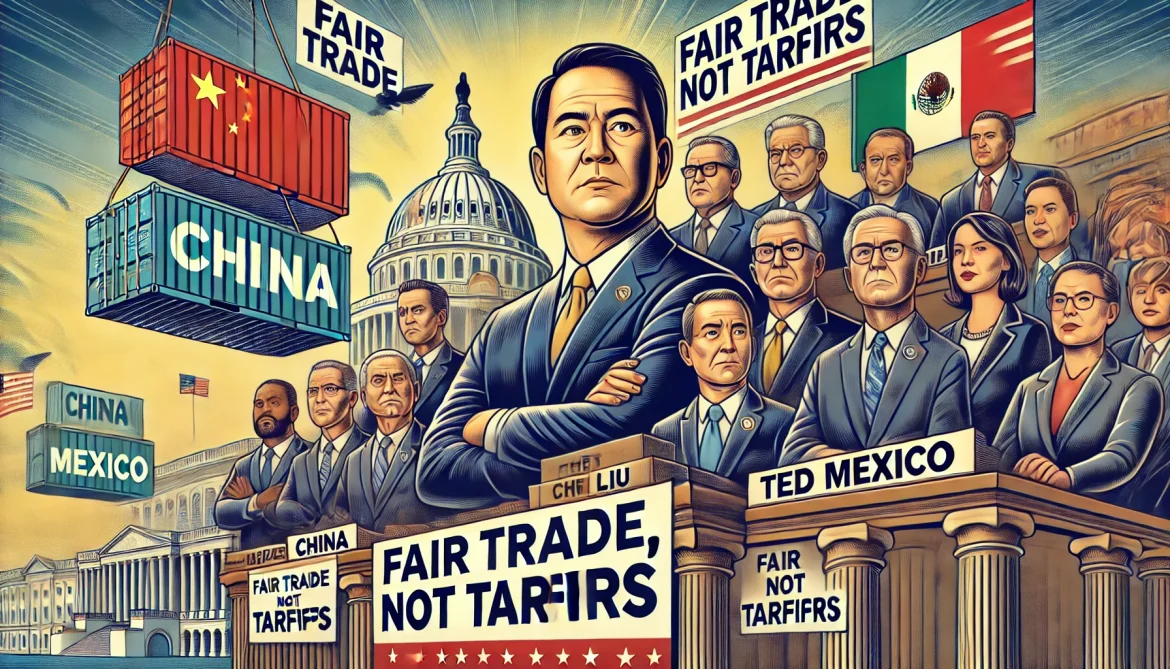President-elect Donald Trump unveils ambitious plans for his upcoming term, including proposed tariffs on goods imported from China and Mexico. While Republican majorities in both the House and Senate are poised to support Trump’s trade policies, Democrats are signaling strong resistance, warning of potential economic and political repercussions.
California Congressman Ted Lieu emerges as a leading voice in opposing the tariff proposals, which he argues could disproportionately affect American consumers. Lieu points out that imports from China and Mexico account for approximately 40% of California’s trade, meaning the state’s economy and residents would bear significant financial burdens if tariffs are enacted. He emphasizes that the cost of these tariffs would ultimately be passed on to American households through higher prices on everyday goods.
Lieu compares the potential backlash to the political fallout from previous Republican agendas, recalling how the party’s focus on divisive issues like gay marriage in 2004 led to a Democratic wave in the 2006 midterm elections. He warns that aggressive trade policies could result in similar consequences, galvanizing voter opposition and threatening Republican control of Congress.
Democratic lawmakers are working to rally bipartisan support against the tariffs, citing concerns over their impact on small businesses, global supply chains, and the broader U.S. economy. Economists also warn that such measures could escalate trade tensions, disrupt markets, and harm American exporters who rely on stable international trade relationships.
Despite the opposition, Trump defends the tariffs as necessary to protect American industries and reduce trade deficits. His administration frames the proposals as a cornerstone of his “America First” economic agenda, aimed at reshoring manufacturing jobs and countering what they describe as unfair trade practices by China and Mexico.
As Democrats mobilize to counter Trump’s trade policies, California’s role as a major hub for international commerce places the state at the center of the debate. Advocacy groups, business leaders, and trade experts are joining the conversation, adding pressure on lawmakers to weigh the potential consequences of the proposed tariffs.
The unfolding battle over trade policy sets the stage for one of the defining economic debates of Trump’s next term, with significant implications for U.S. consumers, businesses, and political dynamics heading into the next election cycle.



